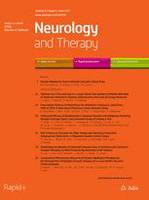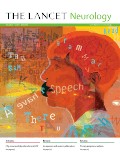
Parkinsons Disease
Scope & Guideline
Leading the charge in innovative Parkinson's disease studies.
Introduction
Aims and Scopes
- Clinical and Therapeutic Insights:
The journal emphasizes studies that explore clinical features, therapeutic interventions, and management strategies for Parkinson's disease, aiming to enhance the quality of life for patients. - Neurobiological Mechanisms:
Research focusing on the neurobiological underpinnings of Parkinson's disease, including genetic, molecular, and neurophysiological studies, is a core area of interest. - Non-Motor Symptoms:
A significant focus is placed on the non-motor symptoms associated with Parkinson's disease, such as cognitive impairment, mood disorders, and gastrointestinal issues, highlighting their impact on patient care. - Innovative Rehabilitation Approaches:
The journal features studies on innovative rehabilitation techniques and therapies, including physical, cognitive, and occupational therapies, aimed at improving functional outcomes for patients. - Technological Advances in Monitoring:
Emerging technologies, such as wearable devices and telemedicine, are explored for their potential to monitor symptoms and improve care delivery in Parkinson's disease patients.
Trending and Emerging
- Mental Health and Quality of Life:
There is an increasing focus on the psychological aspects of Parkinson's disease, including mental health interventions and their impact on the overall quality of life for patients. - Personalized Medicine Approaches:
Emerging studies are emphasizing personalized medicine, where treatment plans are tailored to individual patient profiles based on genetic, phenotypic, and environmental factors. - Technological Integration in Care:
The integration of technology, including telehealth and wearable sensors, is gaining momentum, allowing for continuous monitoring and personalized adjustments in treatment. - Holistic and Multidisciplinary Care Models:
Research exploring holistic care models that integrate various health professionals and therapies to address both motor and non-motor symptoms is on the rise. - Neuroprotective Strategies:
There is a growing interest in neuroprotective strategies, including dietary and lifestyle interventions, aimed at slowing disease progression or mitigating symptoms.
Declining or Waning
- Traditional Pharmacological Treatments:
There is a noticeable decrease in studies focused solely on traditional pharmacological treatments, such as Levodopa, as research increasingly emphasizes comprehensive and multidisciplinary approaches to care. - Single-Factor Analyses:
Research that investigates singular factors in isolation, such as one specific symptom or treatment, is becoming less prevalent, with a shift towards more integrative and multifactorial studies. - Basic Animal Models:
Research relying heavily on basic animal models without translational applications to human conditions is declining, as there is a growing demand for studies that bridge basic science and clinical relevance.
Similar Journals

Epilepsy & Behavior Reports
Bridging Research and Practice in Epilepsy CareEpilepsy & Behavior Reports, a distinguished journal published by ELSEVIER SCIENCE INC, specializes in the latest research and developments in the field of epilepsy and related behavioral conditions. Since its inception in 2019 as a fully Open Access journal, it has carved a niche for itself within the scientific community, providing an essential platform for researchers and clinicians focused on behavioral neuroscience and neurology. The journal's commitment to disseminating high-quality research is reflected in its current rankings within Scopus, placing it within the Q3 category for Behavioral Neuroscience and Clinical Neurology, underscoring its relevance to emerging trends in these fields. Located in the heart of New York, the journal strives to foster collaboration and innovation, making it a vital resource for academics, practitioners, and students eager to advance their understanding of epilepsy and its behavioral implications. The convergence of expertise and research in Epilepsy & Behavior Reports promises to illuminate crucial aspects of neurological health, driving forward the discourse that shapes future treatment and understanding of epilepsy.

Journal of Movement Disorders
Advancing knowledge in movement disorders.The Journal of Movement Disorders, published by the Korean Movement Disorders Society, is a premier open access journal dedicated to advancing the field of neurology with a specific focus on movement disorders. Established in 2008 and indexed with ISSN 2005-940X and E-ISSN 2093-4939, this journal plays a vital role in disseminating high-quality research and clinical insights to a global audience. With an impressive Q2 ranking in both Neurology and Clinical Neurology categories for 2023, the journal continues to feature innovative research articles that contribute to better understanding and management of various movement disorders. Ranked 104th out of 400 in Clinical Neurology and 54th out of 192 in Neuroscience, the Journal of Movement Disorders offers an essential platform for researchers, healthcare professionals, and students alike, fostering collaboration and knowledge exchange in a rapidly evolving field.

Neurodegenerative Diseases
Elevating research on the spectrum of neurodegeneration.Neurodegenerative Diseases, published by KARGER, is a prominent academic journal dedicated to advancing the field of neurology and neuroscience. With an ISSN of 1660-2854 and E-ISSN 1660-2862, this journal serves as a vital platform for researchers, professionals, and students engaged in the exploration of neurodegenerative disorders from various perspectives, including clinical applications and therapeutic interventions. Spanning two decades since its inception in 2004 and set to converge in 2024, it has steadily built a reputation within the academic community, achieving a commendable Q2 ranking in clinical neurology and Q3 in general neurology according to the 2023 category quartiles. The journal boasts an impressive Scopus rank of 114/400 (71st percentile) in clinical neurology and 58/192 (70th percentile) in neuroscience neurology. While not classified as open access, the publication provides critical insights into the latest research and developments, making it an essential resource for anyone dedicated to understanding and combating neurodegenerative diseases.

Journal of Huntingtons Disease
Connecting Science and Therapy for Huntington's DiseaseThe Journal of Huntington's Disease is a premier academic publication dedicated to advancing the understanding of Huntington's disease and related neurodegenerative disorders. Published by IOS PRESS, this journal has established itself as a vital resource for the scientific community, with an impressive impact factor reflecting its rigorous standards and influential research contributions. With a converged publication period from 2012 to 2024, the journal holds esteemed rankings in the 2023 Q2 category for Cellular and Molecular Neuroscience and Q1 for Neurology (clinical) on Scopus, highlighting its relevance and authority within these critical fields. Researchers, professionals, and students will find a wealth of peer-reviewed articles that examine the molecular mechanisms, clinical manifestations, and therapeutic strategies related to Huntington’s disease. Although not an open-access journal, it provides various access options to ensure that critical research reaches its intended audience. As an essential platform for disseminating groundbreaking findings in neurology and neuroscience, the Journal of Huntington's Disease plays a crucial role in shaping the future of research and treatment strategies related to this devastating condition.

Neurology and Therapy
Exploring Innovations in Neurology and Therapeutic SolutionsNeurology and Therapy, published by SPRINGER LONDON LTD, stands as a pivotal platform for researchers and practitioners in the field of neurology and its therapeutic applications. This Open Access journal, active since 2012, facilitates the dissemination of innovative studies and cutting-edge findings aimed at improving neurological health. With an impressive ranking in the 2023 Scopus Rankings, where it holds a Q2 category in Neurology and a Q1 category in Clinical Neurology, it underscores its prominence in advancing neurological research. The journal's intriguing scope encompasses a wide-ranging exploration of neurological disorders, treatment methodologies, and healthcare strategies, making it a valuable resource for those vested in enhancing patient outcomes. With an appealing average impact factor, readers are encouraged to dive into the latest advancements and engage with the scholarly discussions that are shaping the future of neurology.

Cognitive and Behavioral Neurology
Unraveling the Complexities of Neurological DisordersCognitive and Behavioral Neurology is a prominent peer-reviewed journal dedicated to advancing the understanding of cognitive and behavioral aspects of neurological disorders. Published by Lippincott Williams & Wilkins, this journal has established itself as a vital resource for researchers, clinicians, and students in the fields of cognitive neuroscience, neuropsychology, and psychiatry. With an ISSN of 1543-3633 and an E-ISSN of 1543-3641, it offers a robust platform for the dissemination of high-quality research, as evidenced by its positioning in the Q3 quartiles across various categories, including Cognitive Neuroscience and Psychiatry. The journal, which has been actively publishing since 2003, encourages innovative studies that explore the intersection of cognition and behavior in neurological contexts. As a vital contributor to the academic dialogue on these topics, it provides an essential archive of findings and discussions that inform clinical practice and educational approaches, reflecting its commitment to improving patient outcomes and enhancing neurological science.

EUROPEAN NEUROLOGY
Illuminating Insights in Clinical and NeuroscienceEuropean Neurology, published by KARGER, is a distinguished journal in the field of neurology, catering to both clinical and neuroscience specialties. Since its inception in 1897 and continuing through 2024, the journal has been a vital platform for disseminating significant research findings and insights in neurology. With an ISSN of 0014-3022 and E-ISSN of 1421-9913, it ranks in the Q3 quartile in both clinical neurology and general neurology categories, reflecting its commitment to scholarly excellence while holding the 175th rank in clinical medicine and the 93rd in neuroscience, according to Scopus metrics. European Neurology facilitates a deeper understanding of neurological disorders and treatments, appealing to a diverse readership that includes researchers, clinicians, and students alike. Despite not currently offering open access, the journal’s rigorous peer-review process ensures that only high-quality research reaches its audience, making it an essential resource for those looking to stay informed in the rapidly evolving field of neurology.

LANCET NEUROLOGY
Advancing the Frontiers of Neurological ScienceThe Lancet Neurology is a premier academic journal published by Elsevier Science Inc, specializing in the field of neurology. With a robust impact factor that signifies its authoritative presence, it consistently ranks in the Q1 category for clinical neurology according to the 2023 standards, positioning itself as the leading journal in its domain, ranking #1 out of 400 in Scopus' neurology rankings and placing in the 99th percentile. Since its establishment in 2002, it has provided a vital platform for disseminating innovative research and clinical advances related to neurological disorders. The journal’s precise focus includes cutting-edge studies on neurodegenerative diseases, stroke, epilepsy, and neuroimaging, which are essential for advancing clinical practice and improving patient outcomes. While it does not offer open access, readers can find high-impact research published monthly, making it indispensable for practitioners, researchers, and students eager to stay at the forefront of neurological science.

RHEUMATOLOGY INTERNATIONAL
Empowering researchers and clinicians with vital insights.Rheumatology International, published by Springer Heidelberg, is a prestigious journal that focuses on innovative research in the field of rheumatology and immunology. Established in 1981, this peer-reviewed journal has contributed significantly to advancing our understanding of autoimmune disorders, clinical approaches, and therapeutic interventions. It holds a commendable Q2 ranking in the categories of Immunology, Immunology and Allergy, and Rheumatology as of 2023, showcasing its influence and importance within these disciplines. With a robust Scopus ranking—positioned 14 out of 73 in Medicine Rheumatology—it caters to a diverse audience of researchers, clinicians, and students committed to improving patient care and treatment modalities. Although it does not currently offer open access options, the journal remains a vital resource for insights on contemporary challenges and breakthroughs in rheumatological research, published from its base in Heidelberg, Germany.

BIPOLAR DISORDERS
Connecting Research, Practice, and ProgressBIPOLAR DISORDERS, published by Wiley, is a leading international journal dedicated to advancing the understanding and treatment of bipolar disorders. Since its establishment in 1999, the journal has become a vital resource in the fields of Biological Psychiatry and Psychiatry and Mental Health, currently ranked in the Q2 category for Biological Psychiatry and Q1 for Psychiatry and Mental Health as of 2023. With impressive Scopus rankings, it stands at 75th out of 567 in Psychiatry and Mental Health and 11th out of 51 in Biological Psychiatry, reflecting its influential role in shaping mental health research. The journal not only focuses on empirical studies, reviews, and clinical reports but also encourages innovative methodological advancements in understanding bipolar disorders. Although it does not offer Open Access, its extensive coverage from 1999 to 2024 ensures that practitioners, researchers, and students have access to a wealth of knowledge critical for the development of effective therapeutic interventions. For those engaging with cutting-edge research in psychiatric care, BIPOLAR DISORDERS serves as an essential platform for knowledge dissemination and academic discourse.